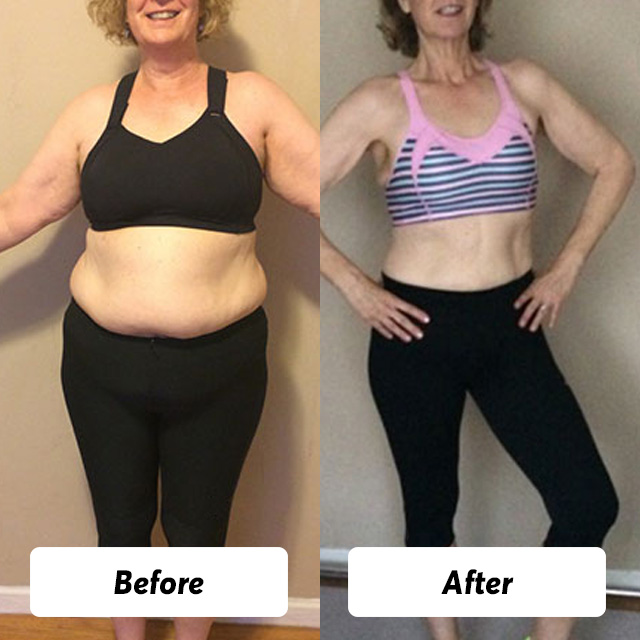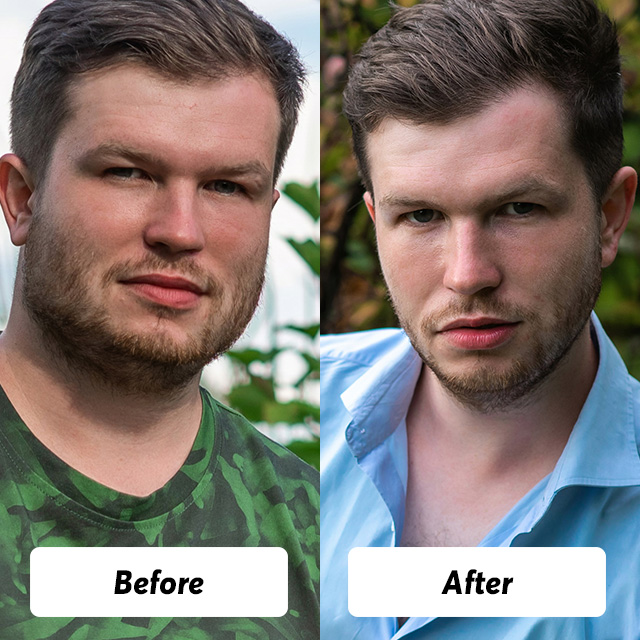How to Get Incredible Results With Intermittent Fasting?

What we all expect when we start a new diet are positive results.
How frustrating it is to jump from one diet to another when all you manage to lose is money and time.
Whether it’s to lose weight or to feel healthier, we are always searching for the ideal method.
Intermittent fasting promises and fulfills these expectations in an incredible way. Join us as we explore the tricks that work best to get the results you want.
Intermittent fasting: what is it?
Over the last years, the intermittent fasting method has taken major relevance.
At Health Insider, we have done some research to provide you with tips to follow this diet and get effective results.
The best thing about this type of diet is that there are many different ways to do it. You can choose the number of hours you want to fast according to your lifestyle.
Many people believe that fasting is to stop eating. But the key to this method is to continue eating your favorite foods within a specific time frame.
Also, if you think fasting is synonymous with starvation, you are wrong. You can include nutritious and delicious recipes that will keep you feeling satiated. At the same time, it will help you lose weight.
Intermittent fasting is healing, as it gives your body the rest it needs to repair itself. By eating recipes high in good fats and low in carbohydrates, you not only lose weight but also improve your health.
How much weight can you lose with an intermittent fasting diet?
The first thing to remember is that everyone is different. But, that doesn’t change the fact that everyone can achieve positive results.
Some studies have found a moderate weight loss of up to 8% of body weight in the first few weeks. It depends on how well you follow the intermittent fasting method.
The more overweight you are when you start, the more weight you will lose. By reducing the number of meals during the day, you will reduce the number of calories you eat. That leads to sustained weight loss.

Advertisement
Your Personal Intermittent Fasting App
- Progress tracker and calendar
- Calorie tracker
- More than 5,000 healthy recipes
- Training routines
- Daily motivation and tips
- Water intake targeting
- Daily caloric intake tracker
It sounds logical to say that you can lose weight by skipping meals for 12–24 hours. But, the science behind fasting is that you have to make sure you are eating an adequate number of nutrients.
A person who wants to lose a few pounds always has the complication of going over the calories with a regular diet. It is easy to go over calories even if you eat healthy food.
If you are a beginner, you may find it difficult at first as your body must adapt to a new eating schedule. But, with perseverance, you can build good habits.
An advanced diet user knows that sometimes you have to sacrifice to get the results you want. That does not mean that intermittent fasting is torture. It is a method that makes you feel good.
Actually, there are plenty of IF benefits, and we prepared a video for you:
Evidence-based benefits of intermittent fasting
Intermittent fasting has many benefits, including:
- Allows the digestive system to rest
- Promotes cell regeneration obtaining great anti-aging effects
- Improves blood glucose levels
- Helps lose weight in a healthy way
- In terms of practicality, it saves time in the kitchen as you have fewer meals to prepare
- Helps lower cholesterol and triglycerides
- Reduces inflammation
- Reduces insulin resistance
Intermittent fasting results by real people
We want to show you all the stories we have found about people who obtained good results with fasting. But, there are so many that you would spend hours reading.
These are our favorites; ordinary people who tried and got positive results.
Meet Michelle Davis, a 53-year-old mom who discovered fasting during a trip to Dubai. She found out it was a tradition in that country. She had no choice but to stick to the foreign customs during her time there.
Thanks to that, her life changed completely.

Elisa’s transformation, 44, was so dramatic, her friends didn’t believe she had achieved it without liposuction.

Marline, 44, is enjoying showing off her bikini without any shame. Thanks to intermittent fasting, she found a quick way to regain her self-confidence and feel good again.

Have a look at why more men and women are practicing intermittent fasting – the changes are incredible!


How to start following the intermittent fasting diet
To get started, if you are a beginner, we recommend downloading the DoFasting app. It will help you organize your schedule and give you recipe ideas to make your path easier.
This is a good option even if you are advanced faster. You will find tips, alarms, progress tracking, and daily motivation.
Check out the app and sign up, so you don’t feel lost while you get used to installing good habits.
Once you’re ready, follow these tips to make your intermittent fasting effective:
- Water and natural infusions will be your best companions. Keep them always at hand to keep anxiety away.
- Before you start to stop eating for several hours, start by lowering the servings you pour on your plate. This way, you will reduce the calories ingested.
- Cut snacking to reduce the number of meals you eat during the day.
- Substitute breakfast with an infusion and lower your dinner calories. This way, you can transition to fasting without feeling hungry.
- Include foods rich in protein to protect your muscle mass.
- Get a journal to write down your thoughts when it becomes more difficult. A good idea is to write down why you are fasting and the goals you want to achieve.
- Take it easy every day. Relax and live one day at a time, enjoying the small changes.
- Find activities that keep you distracted, such as drawing, reading, walking, or studying.
- During feeding periods, make sure you nourish yourself well. Think about the benefits of each food. Always choose the best options on the market.
- If you feel energetic and do not have any health impediments, you can add an exercise routine during the day.
What kind of fasting schedule should I follow to get the best results?
There are many ways to practice fasting. You can try the 7-day water fast, fast for 14, 16, 20, or 24 hours. It depends on your lifestyle.
Studies have similar results in all cases: all schemes seem to be beneficial.
In this type of scheme, the user must stop eating for a full day and eat as usual the next day. By doing so, the user achieves a 24-hour fast.
This does not mean that this is the only way to practice intermittent fasting to be effective. Since all people are different, you can adjust the schedule to fit your lifestyle.
The most important factor is that you complete at least 12 hours of fasting. The easiest way to do this is to eat dinner early so that most of the fasting hours are spent sleeping. This is the best way to avoid cravings and anxiety.

Avoid these 3 mistakes while fasting
#1 Eating food very low in calories
This can not only slow down your metabolism, but you will go through the day hungry. Good nutrition is key to getting the benefits of fasting.
#2 Poor hydration
Water is important in all types of diets since hydration of the cells is vital. Besides, ensure that the liquids drunk throughout the day do not contain calories not to break the fast.
7-day water fasting is a dangerous practice since you do not eat anything else. During fasting hours, you can drink as much water as you want.
#3 Eating too much
If you choose to eat only one meal a day, it may seem like you are eating fewer calories, but this is not always the case. Depending on what you put on your plate, you may overeat without realizing it. This will make it difficult to lose weight.
Can anyone do intermittent fasting?
If you are a healthy person and want to try a method to lose weight, you can start fasting with confidence. But, if you do not feel well when you stop eating for so many hours, stop. It is important to listen to your body to avoid complications.
Intermittent fasting is a safe method, but some people should not follow this diet:
- Children
- Pregnant women
- Elderly people with degenerative diseases
- Adolescents
- People suffering from gastritis
Also, if you are taking medications, going many hours without eating could be a bad idea.
Changing your diet generates significant stress that can affect your daily work. Intermittent fasting tests self-control and willpower, but the benefits are worth it.
As you can see, changing the routine requires some consideration. It is important to be mentally prepared for the commitment it requires. This is why fasting is not advised for people who have suffered from eating disorders. Fasting could trigger relapses, especially if this diet is not under supervision.
What advantages does intermittent fasting have over any other type of diet?
For us, one of the things we like most about intermittent fasting is that you don’t have to spend hours in the kitchen preparing your meals.
While other diets need you to eat small meals every two hours, with fasting, you only have to worry about 1 or 2 meals a day.
This is very functional for people who work long hours.
Also, with this diet, you don’t need to restrict many of your favorite foods. Of course, most of what you choose should be healthy to get the most benefits.
On the other hand, fasting helps you keep your digestive system free for a longer period of time. This feature allows you to have mental clarity, as digestion is associated with mental health.
How long should I practice intermittent fasting to get results?
It all depends on the method you choose. If you only practice fasting 2 times a week, you will be able to do it for a longer period of time, but the results may be slower.
If you choose to fast for 24 hours on alternate days, it is more difficult for you to maintain it over the long term. But, with this method, you will get results faster.
It also depends on how much weight you need to lose. If you only want to shed a couple of pounds, you will reach your goal in about 2 weeks. But, if you are overweight, you will have to spend a little more time on this method.
Fortunately, whichever scheme you choose, it is very easy to adapt because of the benefits you will gain. You will feel more energetic every day.
With that spark of energy, you will be able to complete other goals you have set for yourself, and your life will be better in every aspect.
The advantage of fasting is that it allows you to be conscious about what you eat and at what time you eat it – always taking into account the nutritional properties of each meal.







Comments (0)